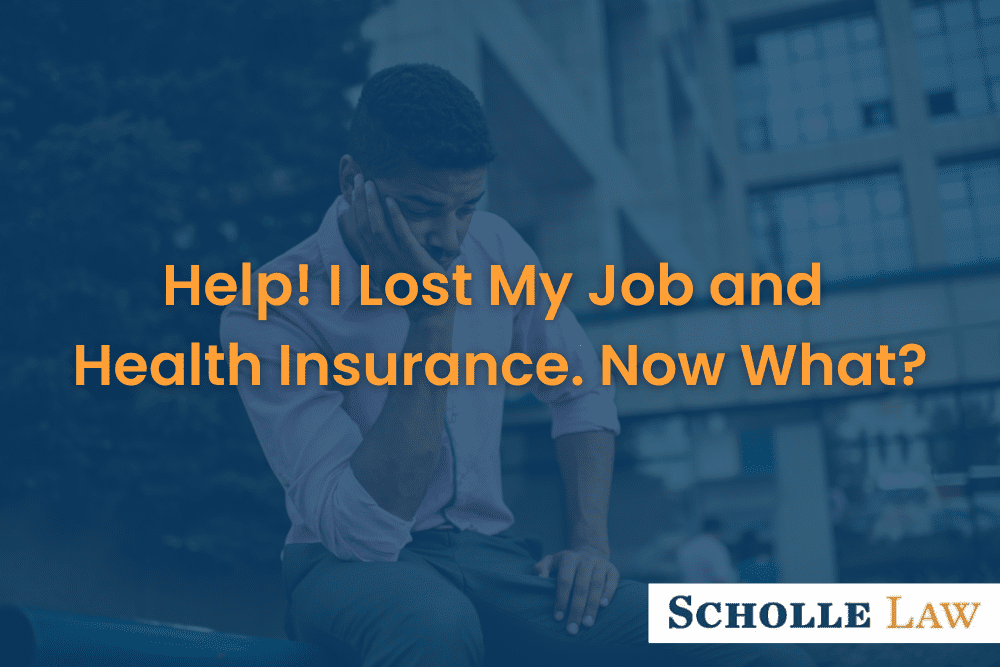Have you lost your health insurance due to a COVID-19 furlough or lay-off?
We’ve all heard that, as a result of COVID-19, many businesses have been forced to reduce the size of their workforce. These furloughs and lay-offs have left everyone wondering how to pay their bills and keep food on the table. Many have also lost the benefit of health coverage.
If this has recently happened to you, continue reading to learn about your options.
COBRA and your health insurance
If you lose your job-based health coverage, one option might be COBRA (Consolidated Omnibus Budget Reconciliation Act). COBRA gives workers and their families the option to choose to continue group health benefits provided by their group health plan for a limited period of time, and under certain circumstances. Qualified individuals may be required to pay the entire premium for coverage up to 102% of the cost of the plan.
In other words, if your employer was paying a portion of your health insurance premium (such as the cost of coverage for the employee, with the employee paying the cost to insure their family), then you will now be responsible for the entire premium.
Affordable Care Act
Another possible option is the Affordable Care Act, available through Health Insurance Marketplace. The open enrollment period to obtain Marketplace health coverage for 2020 has passed; however, there are certain life changes that may qualify you for a Special Enrollment Period. One applicable circumstance is the loss of job-based health coverage.
A Special Enrollment Period may be granted if you or anyone in your household:
- Lost qualifying health coverage in the past 60 days, or expects to lose coverage in the next 60 days,
- Had health coverage through your employer, or the employer of a family member, or
- Lost eligibility for a student health plan.
Marketplace healthcare plan eligibility, cost and requirements
At HealthCare.gov you can browse the various options and create an account if you want to apply for a plan. By answering a few questions and completing an application, you will get an eligibility determination that tells you the coverage options available to you and other members of your household. You will also see if you qualify for a Special Enrollment Period.
It’s important to understand that the Marketplace doesn’t consider your employment status in determining the type of health coverage you are eligible for, or how much help you will get to cover the payments.
If you obtain coverage from Marketplace, you will have to pay a premium, but you may qualify for an affordable plan with savings based on your income and the number of people in your household. You may also qualify for free or low-cost coverage through Medicaid or CHIP (Children’s Health Insurance Program), which offer year-round enrollment. If you qualify, Medicaid and CHIP coverage begins immediately.
Another important note:
After you have finished applying for a plan, you may be asked to submit documents to verify your income. Once enrolled, you should update your application with income or household changes as soon as possible. If your income increases or you lose a member of the household, and you don’t report the change, you may have to pay back the money when you file your federal tax return. If your income is reduced or you add a member to the household, it may lower what you pay in monthly premiums — or cause you to become eligible for Medicaid or CHIP coverage.
What does your health plan cover?
You can get care at many different places, but it is best to get routine and preventative care from a primary care provider (generally found in offices, clinics and health centers). Most plans cover immunizations for children and adults, and annual visits for women and seniors. All Marketplace plans cover prescription medications.
Generally, lab and other services are considered “essential health benefits” and are included in most plans. However, diagnostic testing can vary, and it is always best to ask if specific diagnostic and lab testing are covered by your plan.
While you may be able to see doctors who don’t contract with your plan, visiting an “in-network” provider usually means you’ll have lower out-of-pocket costs. In an emergency, get care from the closest hospital that can help you.
Understand your health insurance rights
As a reminder, federal law and regulations provide protections against pre-existing condition exclusions in health insurance coverage. If you are eligible, health plans must permit you to enroll regardless of your health status, age, gender, or other factors that might predict the use of health services. Marketplace plans can’t terminate coverage due to a change in health status, including diagnosis or treatment of COVID-19.
Scholle Law represents those injured in an accident through no fault of their own. The financial value of every claim relies on the seriousness of the injury, the cost of treatment required to restore the injured person to their pre-accident status, and the injured person’s willingness to diligently follow the doctor’s orders.

